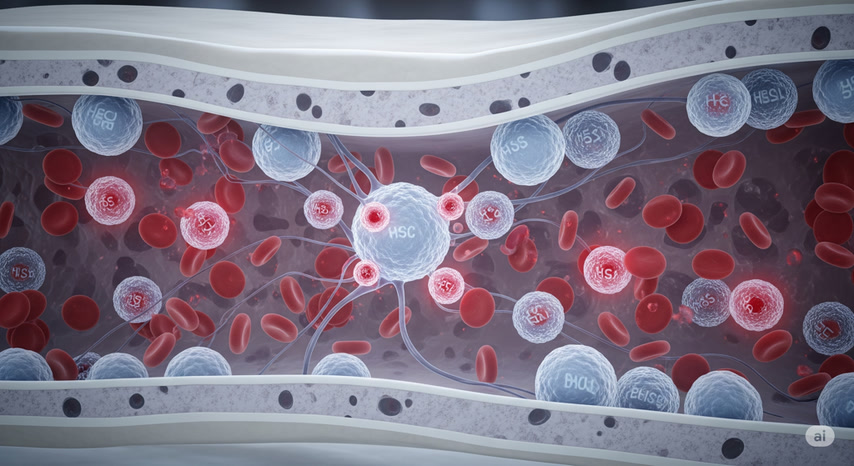Hematopoietic Stem Cells:
Risks to Know
Powerful for blood disorders, but limited and potentially risky for regenerative medicine.

Powerful for Blood, Limited for Regeneration
The term hematopoietic comes from the Greek words hema (blood) and poiesis (to make). Hematopoietic stem cells (HSCs) are the stem cells in your bone marrow responsible for producing all the blood cells in your body. Because of this, HSCs are commonly used in treatments for serious blood-related conditions such as leukemia and lymphoma.
However, outside of blood-related illnesses, HSCs are not an appropriate option for most regenerative treatments.
Risks of HSC Use in Non-Hematologic Conditions
Tumor Risk
Hematopoietic stem cells, particularly if not screened or matched properly, can form tumors in inappropriate environments.
Immune Response
HSCs carry surface markers that can trigger rejection unless the donor and recipient are genetically matched.
Autologous Contamination Risk
When using a patient’s own fat or bone marrow, trace amounts of hematopoietic cells may remain, introducing inflammation.
Our Safer Alternative: Umbilical Cord MSCs
Instead of hematopoietic cells, SCTE relies exclusively on lab-expanded mesenchymal stem cells (MSCs) derived from the umbilical cord. These cells are immune-privileged, non-tumorigenic, and highly effective for joint pain, autoimmune diseases, and chronic inflammation.
Why We Don’t Use Hematopoietic Stem Cells
Talk to One Of Our Stem Cell Experts
Curious about how cell count and viability affect your treatment results? Schedule a one-on-one consultation with our clinical team.
GET STARTED